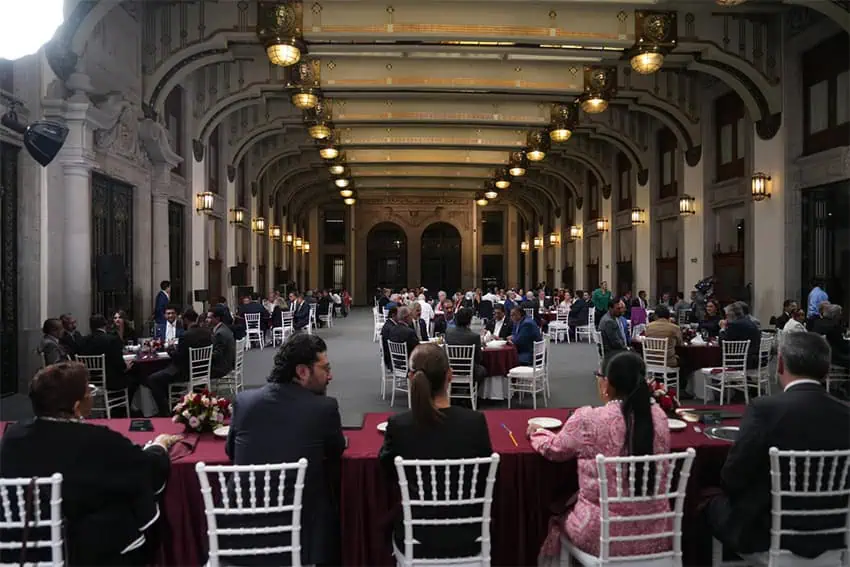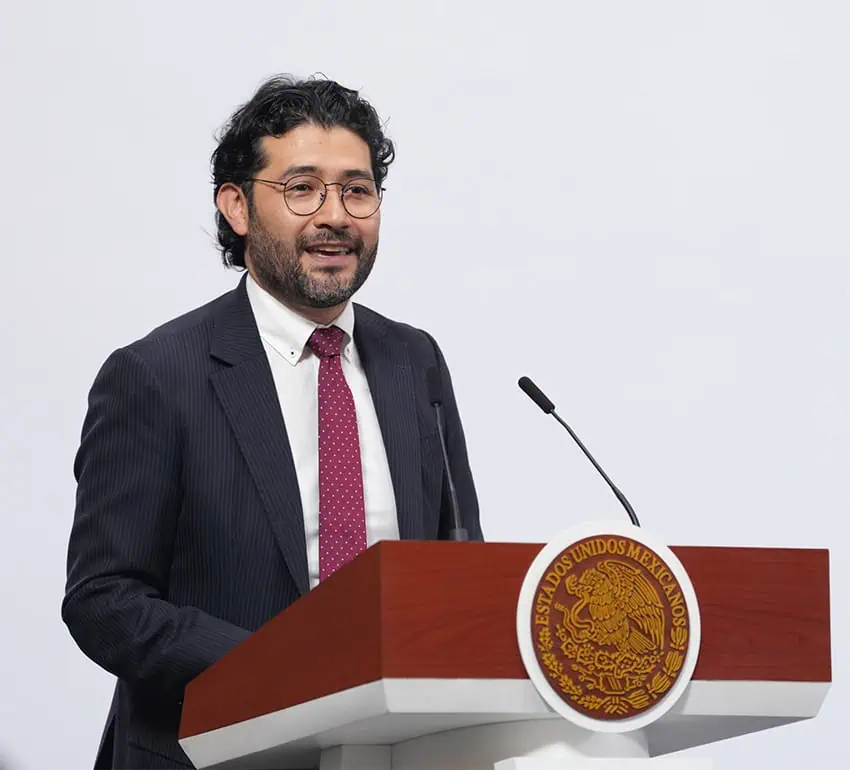Workers across Mexico commemorated Labor Day by voicing their demands for a 40-hour workweek. It appears that the National Palace was listening.
Labor Minister Marath Bolaños on Thursday said that before the end of President Claudia Sheinbaum’s term in September 2030 the government would gradually install a mandatory 40-hour workweek.
Speaking to union leaders and labor representatives during a lunch at the National Palace, Bolaños reminded those in attendance that the 40-hour workweek is No. 60 on Sheinbaum’s list of 100 promises.
“We are convinced that giving workers eight extra hours of free time each week will contribute to national development,” she said.
For her part, Sheinbaum said she would summon workers, union leaders, businessmen and academics to take part in a dialogue from June 2 through July 7 aimed at producing a consensus as to how to implement the reduced workweek.
“We realize we can’t execute this reform from one day to the next, so it is important to agree how it can best be achieved,” Sheinbaum said.

Bolaños said the Labor Ministry would organize the talks as public forums in cities across the country so as to allow for the input of people of all perspectives.
“The goal is to dignify the labor of all workers,” Bolaños said, adding that the reduction of the workweek does not imply lost productivity. “This will add hours to [workers’] lives, boost family welfare and increase employee happiness.”
The issue has been a topic of public debate since Deputy Susana Prieto, a member of the ruling Morena party, submitted a bill to reform Article 123 of the Constitution in 2023.
The business sector vociferously opposed the proposal, but Congress created a commission to study the matter. However, the bill was never moved to committee for consideration.
Management has expressed concern about productivity, while workers are determined to prevent a reduction in wages in conjunction with the proposed reduction in work-hours.
Since the new Congress was seated in September 2024, 10 bills featuring a proposal for a 40-hour workweek have been submitted.

A bill submitted by Deputy Juan Ignacio Zavala (Movimiento Ciudadano party) in October 2024 proposed that the Labor and Economy ministries install a one-year pilot program to study how reduced hours impact productivity. The same bill suggests that certain industries be granted exemptions or receive government subsidies.
In November, Deputy Manuel Vázquez (Movimiento Ciudadano) sponsored legislation that would stagger the implementation of the 40-hour workweek according to the size of the enterprise.
In Vázquez’s bill, micro-businesses would have three-and-a-half years to come into compliance, small businesses would have two years, medium-sized companies would have a year-and-a-half, while large companies would have six months.
Other bills offered similar solutions, one being a two-year implementation process whereby companies have one-year to reorganize their labor needs, then employees work five-and-half days during the second year, with full compliance achieved thereafter.
Last month, Labor Party Deputy José Alberto Benavides proposed a reform mandating a 7-hour workday. This bill would reduce the workweek to 42 hours while still allowing companies to maintain six-day workweeks.
The ongoing debate has prompted the business sector to offer counterproposals including flexible work hours, a change from a daily minimum wage to an hourly minimum wage and a package of incentives for small businesses which might be most impacted by the legislation.
With reports from La Jornada, El Economista, El Financiero, Milenio and Proceso
